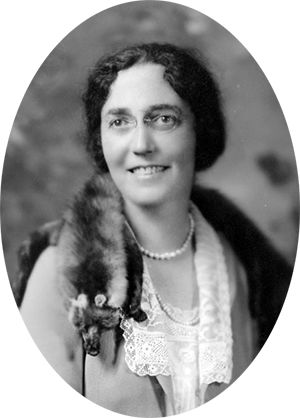Adelina “Nina” Isabel Emilia Luna Otero-Warren (1881-1965)
Page Content
 Adelina Otero-Warren, ca. 1910. (Courtesy of Wikimedia Commons)
Adelina Otero-Warren, ca. 1910. (Courtesy of Wikimedia Commons)

“Ratification of suffrage has been accomplished by the efforts of women all over the country. In every state, as was the case in New Mexico, women were the active element in bringing about ratification. We have a great reason to rejoice in the outcome of our efforts.”
Otero-Warren was a member of Santa Fe’s social elite. Wealthy, educated, and affable, Otero-Warren was active in New Mexico politics as well as the woman suffrage movement. As her family’s eldest daughter, she balanced her activism with the traditional gender role of family matriarch following the deaths of her parents.
Otero-Warren drew the attention of Alice Paul, who chose her to head New Mexico’s chapter of the Congressional Union for Women’s Suffrage. Both Paul and Otero-Warren knew that gaining the support of what today we refer to as the Latinx community was vital to winning suffrage on the national level. To reach the widest audience, Otero-Warren insisted that suffrage literature in the Southwest be published in both English and Spanish.
In the inter-war years Otero-Warren also served as superintendent of Santa Fe County schools and inspector of Indian schools. During her tenure, the U.S. government pressured schools to assimilate Native American and Latinx people by banning traditional languages and customs. Otero-Warren pushed against this agenda, arguing that both Spanish and English be allowed in schools, and soundly criticized the Indian boarding school system in New Mexico for its cruel conditions and practices.
Next: Alice Paul, PhD >